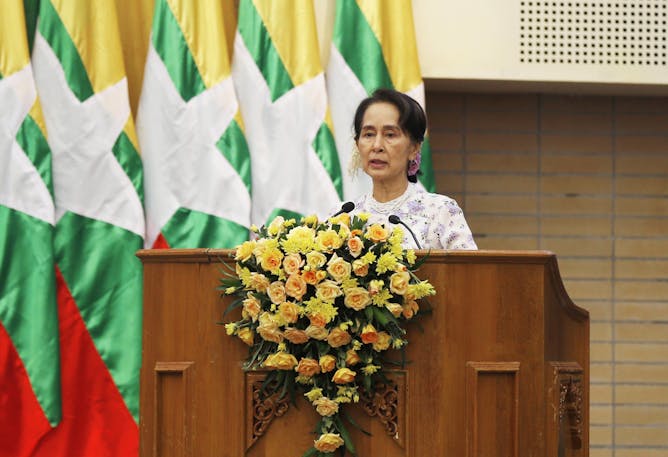
International outrage led to Aung San Suu Kyi falling from grace after Myanmar unleashed violence against the Rohingya.
EPA-EFE/Hein Htet
Henning Melber, University of Pretoria
Human Rights Day might not be a reason for celebrations. But it's a useful reminder of what's been achieved over 70 years.
|
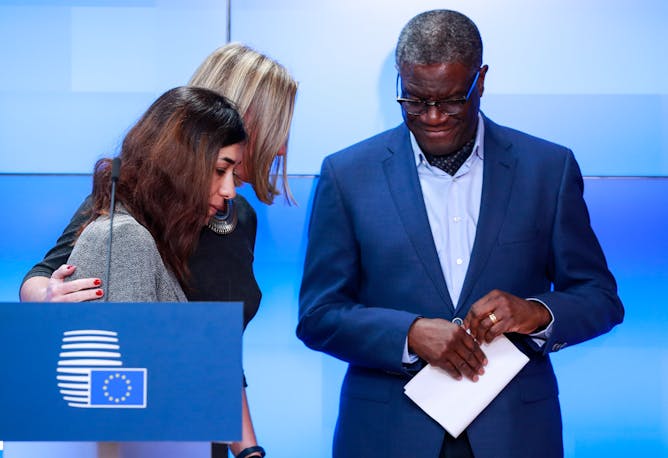
Joint winners of the Nobel Peace Prize: Nadia Murad (left) with Congolese doctor Denis Mukwege.
EPA-EFE/Stephanie Lecocq
Angela Muvumba Sellström, Fondation Maison des Sciences de l'Homme (FMSH) – USPC
The awarding of the Nobel Prize for Peace to Denis Mukwege and Nadia Murad should strengthen efforts against the use of sexual violence as a weapon of war.
|
Science + Technology
|
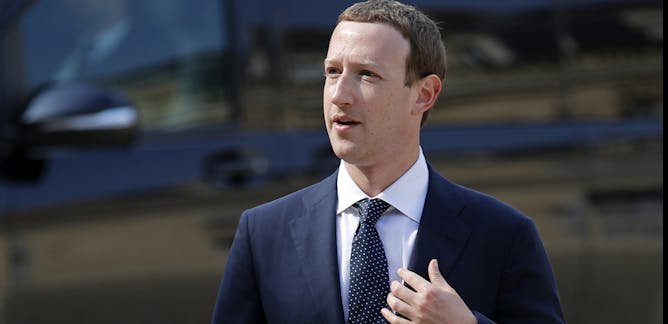
Anthony M. Nadler, Ursinus College; Matthew Crain, Miami University
Without much delay, Facebook and Twitter could make significant changes to limit political manipulation and propaganda. Will they? And will users ask it of the social media giants?
| |
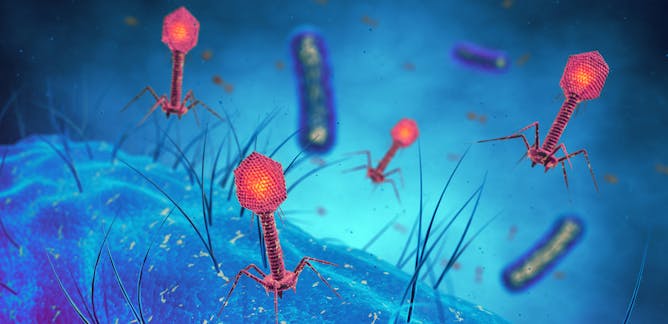
John Bergeron, McGill University
Gene editing through CRISPR may have greater consequences than climate change or unleashing the energy of the atom.
|
|
|
Politics + Society
|

George Ogola, University of Central Lancashire
New media platforms have changed the way people create, consume and relate the news.
| |
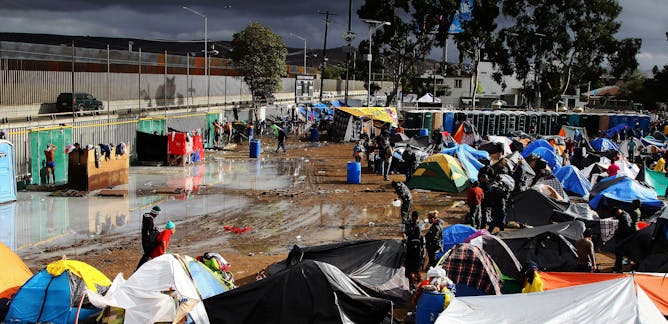
Marcia Vera Espinoza, Queen Mary University of London; Leila Hadj-Abdou, European University Institute; Leiza Brumat, European University Institute
The number of countries withdrawing seems to be growing by the day.
|
|
|
Energy + Environment
|
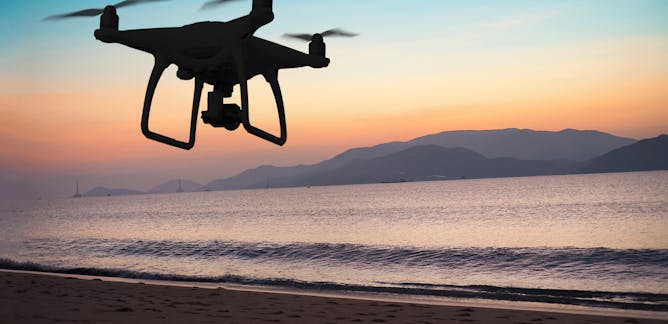
Kwasi Addo Appeaning, University of Ghana
Drones are low cost and easy to operate. They give quality, high resolution outputs, and can be deployed fast and often.
| |

Ifesinachi Okafor-Yarwood, King's College London
Climate change, pollution and illegal fishing by foreign boats is threatening the livelihoods of millions of people.
|
|
|
Health + Medicine
|

Oli Stevens, Imperial College London; T Charles Witzel, London School of Hygiene & Tropical Medicine
Blaming the rapid increases in syphilis cases on PrEP is an oversimplification of a complex problem.
| |

Matthew Smith, University of Strathclyde
A worrying lack of open-minded research means we do not know exactly why food allergy is on the rise.
|
|
|